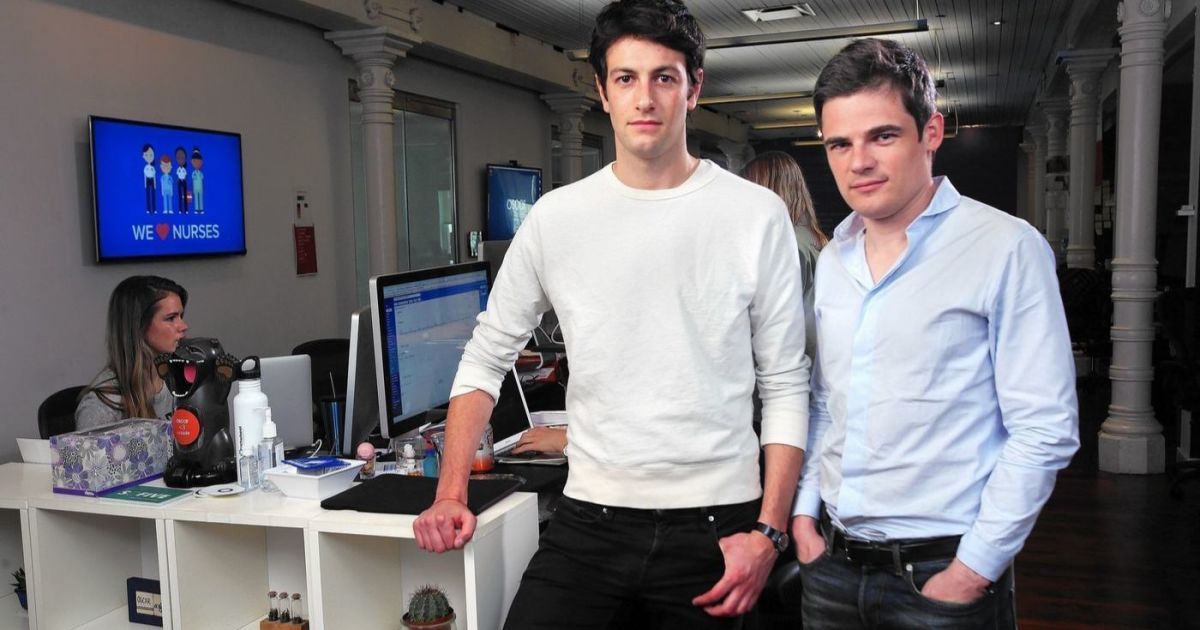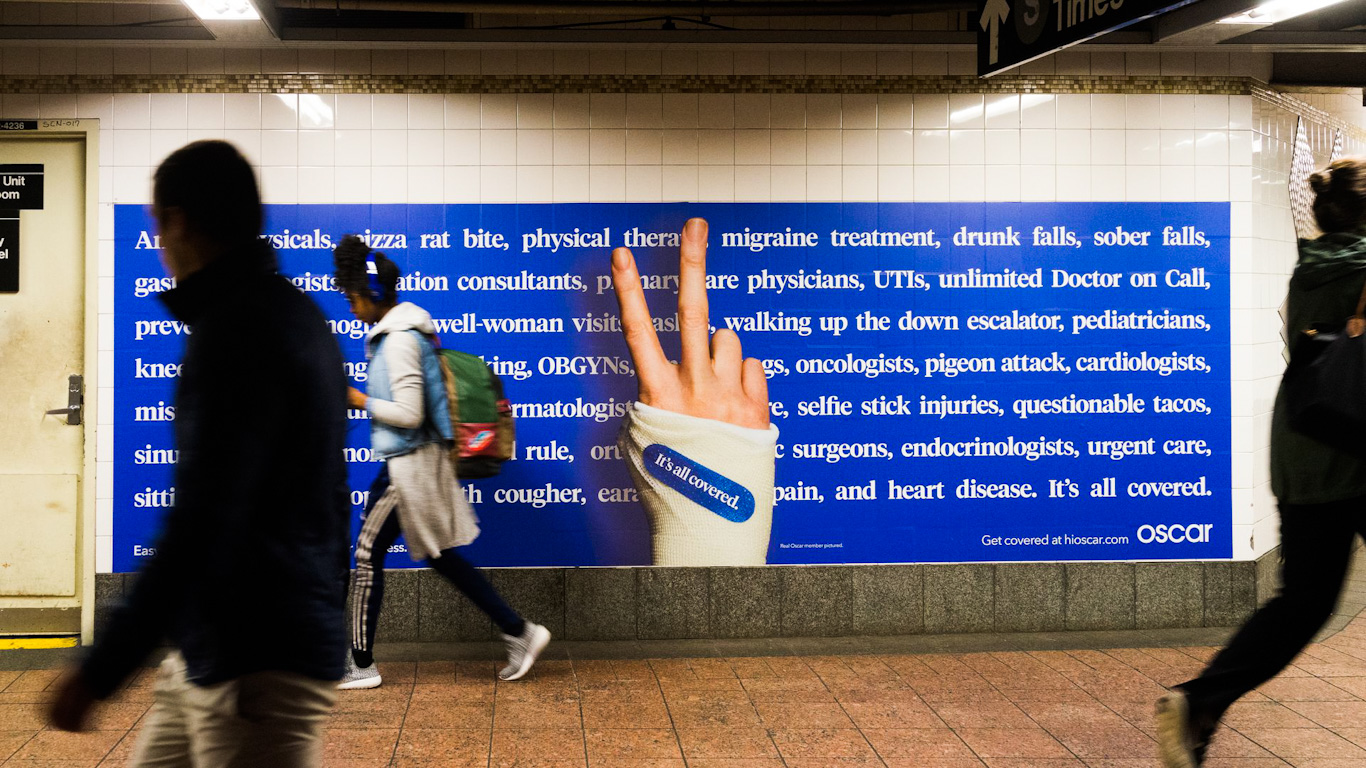Why are the founders of the largest gaming company in Latin America building a telehealth giant in the United States? The answer to this question will not be readily apparent for another few years when the links between big business and the gamified marketplace are clear for everyone to see. In the meantime, Oscar Health, a health insurance start-up co-founded by Jared Kushner’s brother and a German-born computer scientist, filed for an initial public offering last week in what is expected to be one of the largest IPO hauls in history, projected to rake in almost $34 billion.
The questionable background of the company’s founders and their corrupt entanglements with Washington’s highest levels of power raises red flags as Oscar Health is handed access to Americans’ most sensitive medical and financial data.
That data will be collected through Oscar’s mobile app and online platform, which ostensibly allows users to make medical appointments, virtual doctor visits, and prescription drug refills among other things. With 529,000 current subscribers across more than a dozen markets, the tech-based health insurance broker is on route to becoming a powerhouse in the fast-growing telemedicine sector.
The tech-enabled health insurance company operates in 15 national markets, including New York, Texas, and California. Since it began operations in 2013 following the creation of the Affordable Care Act insurance exchanges in 2012, Oscar has partnered with healthcare providers like Humana, Cleveland Clinic, and Cigna to expand its presence in the health insurance marketplaces across the country.
Oscar Health is considered one of the sector’s top ‘disruptors’ because of its “humanizing” approach to scheduling doctor visits, virtual appointments and prescription refills through its mobile app and online platform. In 2018, the company snatched $165 million from Capital G, the investment arm of Alphabet, Google’s parent company and Verily Life Sciences, a division of Google X. Three years earlier, a previous iteration of Capital G, Google Capital, invested $32.5 million in the start-up, reflecting the strong interest of Big Tech’s most powerful corporation.
Peter Theil’s Founders Fund along with Goldman Sachs, one of the underwriters for the IPO, also participated in the same venture capital funding round of 2015 making Oscar Health a strong contender to become the market leader in member engagement services across the rapidly changing health insurance industry.
While observers have struggled over whether to categorize Oscar as a health company or a tech company, even being called the “hipster health insurance company” by Fortune magazine, Oscar is most definitely a tech company first and foremost. It serves as a sort of platform for healthcare providers and healthcare product vendors to scale their access to the telemedicine market, which is exploding as a result of the pandemic protocols.
Google’s life sciences arm, for instance – one of Oscar’s early investors – will be looking to the platform to help distribute high-tech health products like the contact lenses it developed with Novartis AG that detect glucose levels.
Getting in the game
Oscar’s CEO and co-founder Mario Schlosserr claims that he came up with the concept for Oscar after his wife’s first pregnancy. Speaking to Bloomberg in 2018, Schlosser said he identified a gap “in the way the system works” and decided to launch an insurance company based on the consumer that would make it “easier for them to navigate the system.”
Schlosser’s interest in consumer experiences can be traced back to the other company he co-founded with Joshua Kushner called Vostu; the largest mobile gaming company in Latin America. Started in 2007 in Brazil, Vostu grew to become a gaming giant in the region, eventually capturing one-fourth of the mobile gaming demographic and cementing lucrative partnerships with Wal-Mart and Netflix, among others.
Just before launching into their foray into the health insurance industry, Schlosser and Kushner began running into problems, including a copyright infringement lawsuit brought against them by American competitor Zynga. While the complaint was ultimately settled out of court, the duo soon exited the company altogether after “internal management and political issues with the engineering and product teams.”

A McKinsey & Company alumnus, Schlosser’s background runs through some of the darkest corners of the technology, venture capital, and intelligence nexus, including his stint at the Epstein-connected MIT Media Lab, whose founder Nicholas Negroponte developed the abortive covert political influence operation in Latin America known as the One Laptop per Child initiative. Evo Morales was one of the many targets of the seemingly altruistic endeavor and was used by Negroponte’s point man in Bolivia, SoftBank executive Marcelo Claure, to weasel his way into the leader´s good graces. John Negroponte, Nicholas’s brother, was serving as George Bush’s Secretary of State as the One Laptop per Child deals were being made throughout Latin America. The program was denounced by African delegates at the UN and eventually scrapped.
Schlosser also developed analytical trading models at the world’s largest hedge fund, Bridgewater Associates, which has been described as ¨cultish¨ given its somewhat Orwellian hiring practices. Schlosser concluded his time at the firm just before former FBI director James Comey came in to serve as the company’s general counsel.
His longtime business partner and Harvard classmate, Joshua Kushner, runs a private equity and venture capital firm called Thrive Capital, which also has a stake in Oscar Health. Unlike his brother Jared, Josh considers himself a “life-long” Democrat just like his criminally-convicted and later pardoned billionaire father, Charles Kushner.
Friends and family plan
In addition to his investment, Kushner is said to provide “significant input in multiple aspects of the company like strategy, hiring, and marketing,” despite not having a day-to-day involvement in the health insurance start-up. Nevertheless, Josh Kushner’s ties to the Trump White House over the previous four years have certainly represented a significant leg up in the burgeoning success of Oscar Health.
His brother Jared’s leading role in the administration’s COVID-19 response efforts has been linked to numerous irregularities surrounding procurement contracts related to the pandemic, including a COVID-19 testing website built by Oscar Health, who sent engineers, project managers, and executives to the White House for the undertaking, which was eventually scrapped with no explanation.
Donald Trump’s son-in-law had a controlling stake in Oscar Health before joining the administration, which together with the website fiasco was enough to violate several federal laws. Jared Kushner and his brother Josh were the two main “controlling persons” in Oscar’s parent company Mulberry Health, Inc. – a Delaware company.
Whether the Kushners will face any consequences remains to be seen. In the meantime, Oscar Health is about to go public and reel in billions of dollars through the New York Stock Exchange to continue growing the company named after their great-grandfather.
Feature photo | A New York City subway advertisement for Oscar Health. Credit| Oscar Health
Raul Diego is a MintPress News Staff Writer, independent photojournalist, researcher, writer and documentary filmmaker.


